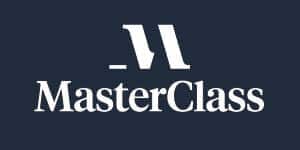Writing is hard. Taking a blank page and filling it with interesting characters, a compelling plot, and an engrossing setting is no small feat, so any aspiring writer can use all the help they can get. With a plethora of how-to-write-a-best-selling-novel books, articles, workshops, and the like, it can be overwhelming for anyone looking to turn their hobby or fan fiction into an additional source of income or even an entire career.
While Margaret Atwood has proven through her fiction, poetry, and interviews to possess sage wisdom, eerily astute foresight, and bravery for talking about sensitive and uncomfortable social issues, does her MasterClass manage to conduct even a small percentage of her formidable creative voltage to the average MasterClass e-student?
For your benefit, we recently went through Margaret Atwood’s MasterClass to see if it’s worth the time and subscription fee to bask in the glory of such accomplished individuals. We studiously took notes and loyally performed the exercises from the workbook – because we want to be a writer, too! Don’t you?
Table of Contents
About the master – Who is Margaret Atwood?

A towering figure in the world of literary fiction, Margaret Atwood is known for her unique retrospective style of writing: detached, sparse prose paired with vivid descriptions. Although her work is considered augustly “literature,” her work falls within several genres as well: historical, science-fiction, speculative, and dystopian, all touching on current trends and themes of patriarchy and political instability.
A prolific author with a multitude of works too numerous to list here, she is most known for her dystopian depiction of a post-coup America in The Handmaid’s Tale (1985). Inspired by historical events, parts of which have arguably come true in recent years, it was adapted into an award-winning television series on Hulu. Her other notable works include the MaddAddam Trilogy of books, Oryx and Crake (2003) being the most notable of the series, in which some of the wilder ideas actually have real-world parallels. She has won two Booker Prize awards, for The Blind Assassin (2000) and The Testaments (2019), and has been shortlisted for it an additional four times, a notable accolade on its own. Her historical fiction novel Alias Grace (1996) has also been adapted into an award-winning series on Netflix.
Is Margaret Atwood’s MasterClass for you?
Are you working on a novel or longer-form manuscript? Then, this class is likely to be at least one of the shining lights guiding you through the dark void that is writing a novel. Margaret is known for her novels, and her class is about the craft, business, and lifestyle that goes into writing them.
The name of the course is “Margaret Atwood Teaches Creative Writing,” which is a bit of a misnomer in that it’s more about crafting and getting your novel manuscript published than it is about learning “Creative Writing.” A “Creative Writing” class often depends on a collective environment where you are given readings, prompts, and, most importantly, feedback from both the teacher and other students about what is and isn’t working in your writing. This course has readings and prompts, but most of them are centered around your “novel in progress.” A Creative Writing course should be about taking risks, failing, and trying again in a safe, encouraging environment. MasterClass doesn’t offer a definitive cohort of other students working through the class with you, and the teacher herself certainly isn’t available for office hours, so the reciprocal nature of a creative writing class is lost here.
Throughout the course, the workbook and Margaret herself frequently refer to your own novel in progress. If you aren’t currently working on a novel, or maybe you’re just not interested in writing a novel or being published, and you just want to practice writing poetry, screenplays, or short stories, then a lot of the advice throughout the course may feel like it’s not intended for you.
What does Margaret Atwood's MasterClass cover?
The overall “shape” of the class’s structure would be akin to an hourglass: starting wide with general concepts, background information, and getting started, narrowing in the middle with “writerly” techniques, tools, and pearls of wisdom you may find useful in the day to day plotting and composing of your novel, and widening again at the end with more general concepts as you purportedly have a finished manuscript and how you may go about properly revising it, marketing it, and getting it published.

Lessons 1 & 2 start with the big picture: the essentialness of writing, storytelling, and expression. Margaret recounts her own story of how she got started writing a novel about ants at the age of 7, taking writing more seriously in high school, considering journalism school then thinking better of it, studying English Language and Literature “before ending up as a teacher and jumping off a bridge,” and how she eventually got started publishing, overcoming condescension, gatekeeping and becoming a writer.
Lessons 3 – 6 are about the writing process: story and plot, structuring and layering narratives, and point of view.
Lessons 7 & 8 are about writing characters: making them compelling, and keeping them imperfect and believable.
Lessons 9 – 13 are about the nitty-gritty details of writing: getting past being stuck, dialogue, sensory imagery, style, and an important but not often touched on subject in creative writing courses – working with time.
Lessons 14 – 16 are about the structure of your book, writing a compelling beginning, a middle that doesn’t sag (a common problem for many novelists), a satisfying ending, and then how best to view your own work with a fresh set of eyes and revise.
Lessons 17 – 19 are about genre conventions and her own forte of writing speculative fiction.
Lessons 20 – 23 are about finding your own path as a writer, getting published, and the reality of earning a living (or not) as a writer.
Class vibes

It’s no secret that e-learning is big business, bringing in hundreds of billions of dollars of revenue per year. One of the more prominent e-learning platforms is MasterClass, which promises to “deliver a world-class online learning experience.” Offering to connect learners with world-renowned experts in their field, Master Class purports that through its courses, subscribers will increase their knowledge and expertise in whatever particular subject is of interest to them.
This being MasterClass, the production values are quite high, class bookends are adorned with storybook sketches and dreamy harp riffs, with our backdrop being set in what looks like a 19th-century drawing room – or perhaps the antechamber of a wizard’s tower. Atwood, or maybe it’s better to call her Margaret since it feels more like she’s our close mentor rather than a distant talking head, peers through the camera directly into our souls with wizened blue eyes that belie her advanced years. Indeed, despite her pushing 80 when this was recorded, her wit and macabre sense of humor at times lend her an air of a keener mind and younger heart than certain 30-year-olds we’ve known. She has a dark sense of humor, frequently joking about dismemberment and other sordid topics, albeit in a tasteful and charming way. She concludes the class by saying, among other things, that maybe “I shouldn’t have been quite so morbid.”
Pearls of wisdom
Sprinkled throughout the course are luminous gemstones of advice. For someone who is perhaps in the midst of the grind with their novel, just one of these pearls may be the thing that helps you uncork the dam that’s holding up the torrent of ideas that’s going to let you ride the current through the doldrums into the open waters of your own masterpiece.
Some gems include:
- “How we’re taught to read and analyze literature in high school is practically backward from how writers write.”
- Immersing yourself in something gives you ideas. You don’t just sit there waiting for lightning to strike. The more you work within something, the more ideas will come. Writing doesn’t always come in a linear fashion. Some like to start at the end and move towards the beginning. Others work at the sentence level and revise until it’s perfect. There are no surefire rules.

- You don’t need to treat storytelling like a university class. Just reading the stories that have come before in order to subvert them, tweak them, or curveball them is enough to make your own plots fresh and interesting.
- The most important part about hitting a dead end isn’t figuring out a way to make it work as part of the story; it’s to realize that there’s nothing to resolve and to write something else.
- “Writing is a process of constant revision.”
- During the beginning part of writing something, you may spend more time thinking about it and figuring things out than actually writing, but as you go on, you will do more writing towards the end.
- People who are dedicated readers but not in the publishing business are valuable to have in your life.
- Read your own text out loud.

- “If something’s not accurate, they’re going to write you a letter, or these days write an internet post that begins with ‘You idiot.’”
- Be able to answer the question, “I haven’t read your book, I’m not going to, and why should anybody bother with it?”
How much does the MasterClass cost?
MasterClass is a subscription-based learning platform, so it’s not possible to purchase courses individually. If you want to take this MasterClass, you have to become a subscriber.
The standard annual plan has been renamed "Plus" and is available at $120 a year (which makes it $10 per month, billed annually), and now provides access to all MasterClass courses on two devices instead of one. The Premium plan, providing access for up to six devices costs $240 per year.
A MasterClass subscription gives you unlimited access to a catalog of 200+ classes, so if you want to take multiple classes throughout the year, the subscription is definitely worth it, and there are pleny of interesting courses on related topics to explore.
Also, the platform offers a 30-day satisfaction guarantee, so if you’re not happy with your learning experience, you can request a full refund.
Note that the "Standard" membership, priced at $72 per year, only gives you access to their short-form learning content – none of their full MasterClasses are included.
Recommendations: Take it at a slow drip
In our modern media landscape, we consume content gluttonously and with abandon. We are used to 15-second videos, and as soon as we become bored with one, we can swipe up to the next video. Maybe this sort of mindset does not accurately describe the average e-learner: a storied Renaissance person with delicate sensibilities and a passion for finer things in life, such as art, writing, and classical music. The kind of person who would watch and study alongside a MasterClass course would be someone patient and willing to set aside time each day in order to develop and hone their skills.
This is why it’s important to recognize that something like MasterClass or something like learning a creative skill, such as writing fiction, goes beyond a considerable undertaking of time and requires an adaptation of a new lifestyle than the one you may currently be living. Learning a skill like writing requires you to nurture it and tend to it even when it’s unimpressive, dirty, messy, and has nothing interesting to present for the time being. You must find yourself enamored and find some strange source of joy from the suffering it entails to devote yourself to it. These are the kinds of things MasterClass cannot teach us. If you’re already on this path, then what do you need MasterClass for? Perhaps as a distraction and a reminder of the struggles of those who came before you. Nothing that you pay money for, subscribe to, and turn on whenever you want can do that. It has to come from within you.
The approach of MasterClass with a monthly subscription, is in a way antithetical to the creative process and adopting said lifestyle. If you pay your monthly subscription fee, the onus is on you to consume content at a feverish pace to get your money’s worth, whereas the act of writing (especially a novel) is a slow drip, a daily endeavor, that percolates and takes time to soak through to the bone.
As much as the idea sounds nice, we don’t learn all that much from sitting back and watching videos. Learning something, especially something creative, such as writing fiction or novels, requires us to be hands-on with it. You just have to roll up your sleeves and do it. There’s a wealth of information available on both the craft and business sides of writing, but when it comes down to it, you simply have to sit down and actually do it, which isn’t easy, no matter how brilliant the master is.
Review conclusion: Inspiring you to write
Despite the shortcomings of the medium Master Class offers, in my experience with the course, it is fair to say sitting down and listening to the sage wisdom of a master of the craft does inspire one to write, which may alone be the cost of admission. At the beginning of her MasterClass, Margaret encourages the student to write daily, and perhaps if one were to adopt a daily habit from that encouragement alone, it would all be worth it in the end.
For a limited time, up to 50% off your subscription.




